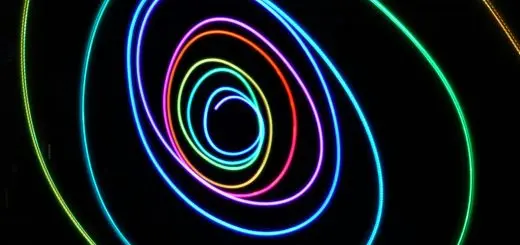Reiki for Stress Relief: Balancing Energy in Modern Life

Looking for more amazing products? Check out our online store and explore our collection here! Happy shopping!
Before diving in, please note: This post is for informational purposes only. If you’d like to know more about how we approach topics, feel free to check out our friendly Disclaimer Page.
Hey there, amazing readers! 
We’re committed to delivering quality posts, and your support (even just sticking around despite the ads) means everything to us. So, bear with us, and thanks for helping us keep the good vibes rolling. Now, on to the fun stuff!
TRANSLATE BUTTON AT THE END OF THE ARTICLE
Reiki for Stress Relief: Balancing Energy in Modern Life
Overview
In today’s fast-paced and demanding world, stress has become an inevitable part of our lives.
The constant pressures from work, relationships, and daily responsibilities often leave us feeling overwhelmed and exhausted.
It is crucial to find effective ways to manage stress and restore balance in our lives.
One such approach is Reiki, a Japanese healing technique that focuses on balancing the body’s energy to promote relaxation and overall well-being.
In this article, we will explore what Reiki is, how it works, its origins, the benefits it offers in managing stress, the different techniques used, and how to incorporate it into our daily routine for optimal stress relief.
What is Reiki and How Does it Work?
Reiki is a holistic healing practice that originated in Japan.
The word "Reiki" is a combination of two Japanese words: "Rei," meaning "universal," and "Ki," meaning "life force energy." The core belief in Reiki is that this universal life force energy flows through all living beings, and it is essential for maintaining physical, mental, and emotional well-being.
When the energy flow is disrupted, it can lead to imbalances and manifest as stress, illness, or emotional distress.
A Reiki practitioner uses their hands to channel this life force energy and directs it to the recipient.
This process works by clearing energy blockages, promoting relaxation, and activating the body’s natural healing abilities.
Reiki is a non-invasive and gentle practice that is safe for people of all ages and can be used alongside other medical or therapeutic treatments.
The Origins of Reiki: A Japanese Healing Technique
Reiki was developed by Mikao Usui, a Japanese Buddhist monk, in the early 20th century.
Usui sought to understand the healing methods used by ancient healers and embarked on a quest for knowledge and spiritual enlightenment.
After years of meditation and study, he experienced a transformative spiritual awakening on Mount Kurama, where he gained the ability to heal and channel energy.
Usui established the Usui Reiki Ryoho Gakkai, an organization dedicated to teaching and practicing Reiki healing.
From there, the practice spread throughout Japan and eventually made its way to the Western world.
Today, Reiki is widely recognized as a complementary therapy that promotes relaxation, stress reduction, and overall well-being.
Understanding the Concept of Energy in Reiki
In Reiki, energy is seen as the life force that flows through all living beings.
It is referred to as "Ki" in Japanese, "Chi" in Chinese, and "Prana" in Indian traditions.
This energy is crucial for maintaining physical, mental, and emotional balance and is influenced by our thoughts, emotions, and environment.
Reiki practitioners believe that when the energy flow is disrupted or blocked, it can lead to physical or emotional symptoms.
These blockages can occur due to stress, trauma, negative thoughts, or unhealthy lifestyle habits.
Reiki aims to restore the natural flow of energy, removing blockages and promoting healing and well-being.
The Benefits of Reiki in Managing Stress
Stress is a common factor in modern life, and it can have a significant impact on our physical, mental, and emotional well-being.
Chronic stress can lead to a range of health issues, including cardiovascular problems, weakened immune system, and mental health disorders.
Managing stress is crucial for maintaining overall health and quality of life.
Reiki offers several benefits in managing stress.
Firstly, it promotes deep relaxation, allowing the body and mind to enter a state of calm.
This relaxation response counteracts the "fight or flight" response triggered by stress, reducing cortisol levels and promoting a sense of peace and well-being.
Reiki also helps to release emotional and energetic blockages that contribute to stress and anxiety, allowing for emotional healing and balance.
How Reiki Helps to Restore Balance and Harmony
Reiki works by restoring balance and harmony to the body, mind, and emotions.
By clearing energy blockages, Reiki allows the life force energy to flow freely, promoting overall well-being.
It helps to release stagnant and negative energy, allowing for the renewal of positive and healing energy.
Reiki also supports the body’s natural healing abilities.
It helps to activate the parasympathetic nervous system, which is responsible for rest and digestion, allowing the body to enter a state of deep relaxation.
This relaxation response helps to reduce stress, enhance immune function, and promote overall healing and well-being.
Exploring the Different Techniques Used in Reiki
Reiki practitioners use various techniques to promote energy balance and healing.
The most common technique is hands-on healing, where the practitioner places their hands lightly on or near the recipient’s body, allowing the energy to flow through them.
The practitioner may focus on specific energy centers, known as chakras, or areas of the body that require healing.
Another technique used in Reiki is distant healing, where the practitioner sends energy to the recipient from a distance.
This technique is particularly useful when the recipient is unable to be physically present or when immediate relief is needed.
Reiki and Mindfulness: A Powerful Combination
Mindfulness, the practice of being fully present in the moment, is an essential component of Reiki.
By combining Reiki with mindfulness, individuals can deepen their experience and enhance the benefits of the practice.
Mindfulness allows us to cultivate awareness of our thoughts, emotions, and physical sensations, helping us to identify and release stress and tension.
During a Reiki session, both the practitioner and the recipient can practice mindfulness.
The practitioner focuses their attention on channeling energy and maintaining a compassionate presence, while the recipient can cultivate mindfulness by being fully present and aware of the sensations and energy shifts occurring in their body.
Reiki for Stress Relief: Case Studies and Success Stories
Numerous case studies and success stories highlight the effectiveness of Reiki in managing stress and promoting overall well-being.
Many individuals who have incorporated Reiki into their lives report reduced stress levels, improved sleep, increased energy, and enhanced emotional well-being.
For example, a study published in the Journal of Alternative and Complementary Medicine examined the effects of Reiki on the autonomic nervous system, which is responsible for regulating stress responses.
The study found that Reiki significantly reduced heart rate, blood pressure, and the activity of the sympathetic nervous system, indicating a relaxation response.
How to Find a Reiki Practitioner Near You
If you are interested in experiencing the benefits of Reiki for stress relief, it is essential to find a qualified and experienced Reiki practitioner.
Here are some steps to help you find a practitioner near you:
Ask for recommendations from friends, family, or healthcare professionals who have experience with Reiki.
Search online directories or websites that specialize in alternative therapies and healing modalities.
Contact local wellness centers, holistic health clinics, or spas to inquire about Reiki practitioners they may recommend.
Attend local wellness fairs, workshops, or events where Reiki practitioners may be present.
Interview potential practitioners to ensure they align with your needs and preferences.
Ask about their training, experience, and any certifications they hold.
The Role of Reiki in Complementary and Alternative Medicine
Reiki is recognized as a complementary therapy in the field of integrative medicine, which combines conventional medical treatments with alternative and complementary therapies.
It is important to note that Reiki should not be used as a substitute for medical care, but rather as a supportive practice that enhances overall well-being.
Many healthcare institutions, including hospitals and cancer treatment centers, offer Reiki as part of their integrative medicine programs.
Reiki has been shown to reduce pain, anxiety, and fatigue in cancer patients and improve their quality of life.
Incorporating Reiki into Your Daily Routine for Stress Relief
To maximize the benefits of Reiki for stress relief, it can be helpful to incorporate it into your daily routine.
Here are a few ways to do so:
Practice self-Reiki: Set aside some time each day to practice Reiki on yourself.
You can place your hands on different parts of your body, focusing on areas that feel tense or in need of healing.
Meditate with Reiki: Combine Reiki with meditation by channeling energy into the body while practicing mindfulness or guided meditation.
Create a Reiki sanctuary: Designate a quiet and serene space in your home where you can practice Reiki and find solace from the stresses of everyday life.
Use Reiki symbols: Learn and incorporate Reiki symbols into your practice to enhance the flow of energy and promote healing and balance.
Receive regular Reiki treatments: Schedule regular sessions with a Reiki practitioner to receive the benefits of hands-on healing and energy balancing.
Conclusion
In the fast-paced and demanding world we live in, stress can greatly impact our physical, mental, and emotional well-being.
Reiki offers an effective and holistic approach to managing stress and promoting overall balance and harmony.
By understanding the concepts and techniques of Reiki, finding a qualified practitioner, and incorporating it into our daily routine, we can experience the profound benefits it offers for stress relief and well-being.
Remember, Reiki is a complementary therapy and should be used alongside appropriate medical care for optimal results.

The Enlightenment Journey is a remarkable collection of writings authored by a distinguished group of experts in the fields of spirituality, new age, and esoteric knowledge.
This anthology features a diverse assembly of well-experienced authors who bring their profound insights and credible perspectives to the forefront.
Each contributor possesses a wealth of knowledge and wisdom, making them authorities in their respective domains.
Together, they offer readers a transformative journey into the realms of spiritual growth, self-discovery, and esoteric enlightenment.
The Enlightenment Journey is a testament to the collective expertise of these luminaries, providing readers with a rich tapestry of ideas and information to illuminate their spiritual path.
Our Diverse Expertise
While our primary focus is on spirituality and esotericism, we are equally passionate about exploring a wide range of other topics and niches 

To ensure we provide the most accurate and valuable insights, we collaborate with trusted experts in their respective domains 
Our blog originally focused on spirituality and metaphysics, but we’ve since expanded to cover a wide range of niches. Don’t worry—we continue to publish a lot of articles on spirituality! Frequently visit our blog to explore our diverse content and stay tuned for more insightful reads.
Hey there, amazing reader! 
Check out our store here and take a peek at some of our featured products below! Thanks for being awesome!











